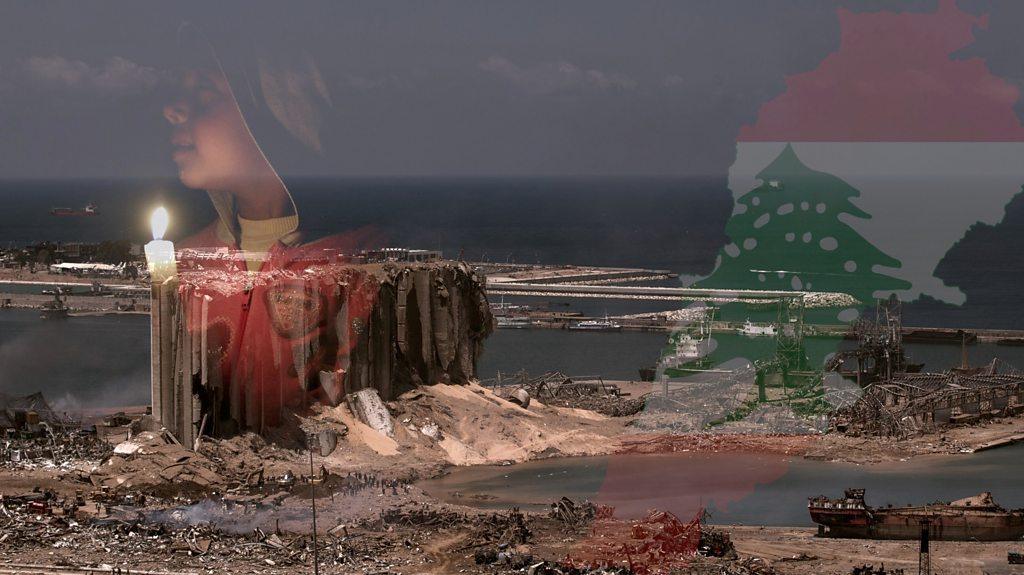Lebanon voters hope to pull country back from brink
- Published
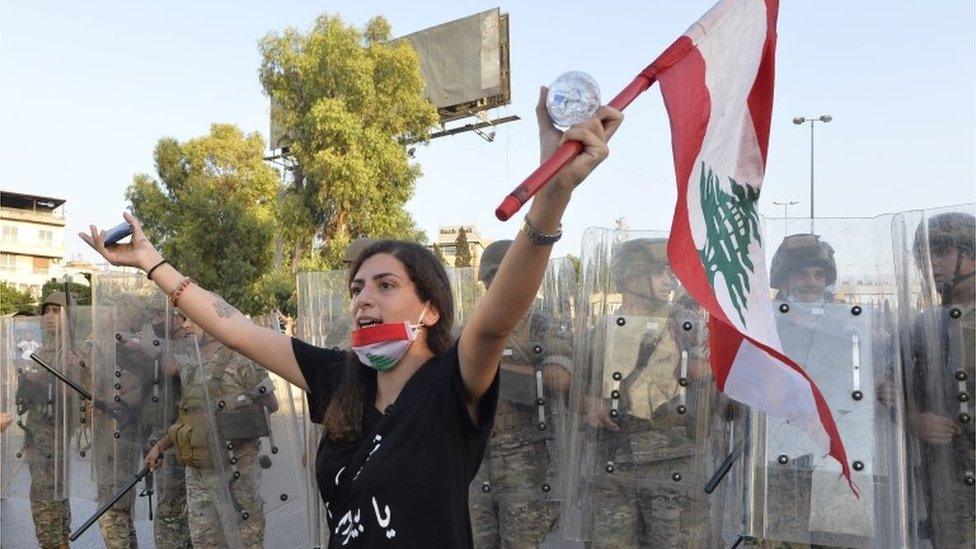
Many in Lebanon accuse the country's political leaders of failing to tackle its deep problems
Lebanon is a country in crisis. The UN says about 80% of its people live in poverty. The capital, Beirut, still bears the scars of the devastating port explosion that killed more than 200 people in 2020. The mood is fragile, hurting, desperate.
On Sunday, the Lebanese people will go to the polls and pass verdict on the politicians that many blame for the state of the country. But can this election deliver the change they need?
Capt Maroun Jreich is scanning the sea through his binoculars, looking for shapes that break the surface. He's searching for bodies floating in the calm, glass-like water. For three weeks, he and his crew have tried to find people who died in the most desperate way.
They had set out from Tripoli in northern Lebanon, hoping for a new life. Instead, they perished in the cold waters, as the small boat they hoped would carry them to a better future sank under the waves.
In a large open square, surrounded by family and friends, Bilal al-Dandashi waits for news. He's hoping Captain Jreich and his crew will find his wife Monira, 12-year-old son Rayan and daughter Layth, aged just four.
Despite his hope, he knows they're almost certainly dead. Amid bright pops of colourful flowers and the sound of children playing, he recalls the careful plans he made.
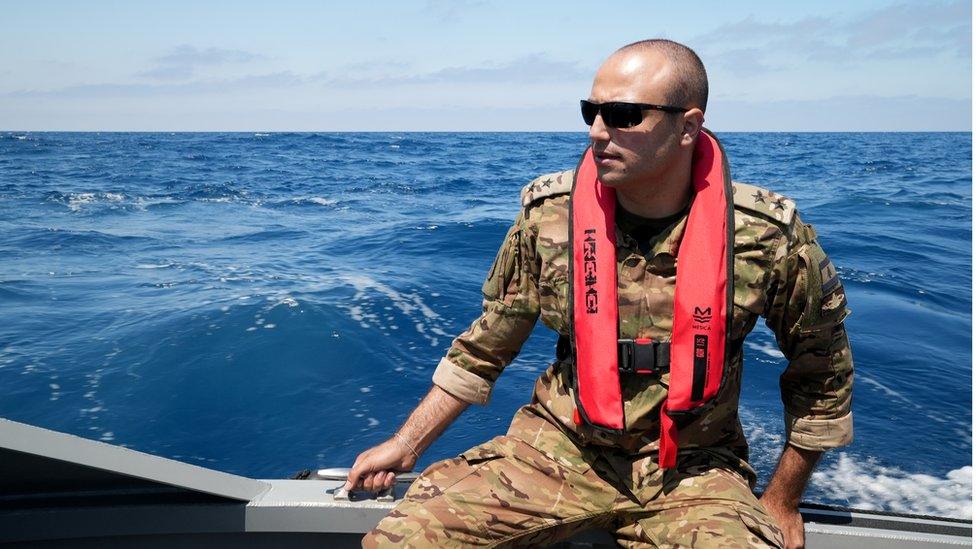
Capt Maroun Jreich scours the waters for the bodies of those who have died trying to leave
"My brother, family and friends clubbed together to buy the boat. We refurbished it and bought life jackets and medicine, food, water and diesel," he says.
"During the last days of Ramadan, we decided to set off. Then tragedy hit."
Bilal, like many others, had decided to take a desperate risk. For many Lebanese who don't have the money for plane tickets, or the right qualifications for a passport, escaping by sea under cover of darkness seems the only option.
Bilal wanted to help his family. But now, the choice he made haunts him.
"The rear sank first, because that's where the engines were. Then we saw white smoke as water entered them. I realised we were sinking. In a matter of three minutes, we were in the water. I thought, 'I'm going to die.'"
"I thought I could hear my daughter's or son's voice. God saved two of my children, but my wife has gone with the other two. I spent four nights down at the beach. I can't sleep anymore. My surviving children don't want to go home: every time they go, they remember."
Bilal knows who he holds responsible for the loss of his family.
"As Lebanese people, from all religions, we are living among monsters. If there really was humanity and mercy, we wouldn't have ended up like this.
"I blame the politicians. They didn't just drown my children, they drowned all of us, all of the Lebanese people."
New challengers
In a country where religion and tradition play a huge role, many of those politicians have been in power for decades.
Lebanon's whole political system dates back to the end of the civil war in 1990. It was put in place to try to bring stability after years of fighting.
Now, though, the rigidity that was designed to protect a fragile peace is, for many, standing in the way of meaningful change.
Ahead of the elections, large crowds gathered in Dahiyeh, south of Beirut, to hear one of those old hands make his party's election pitch. The leader of Hezbollah, Sheikh Hassan Nasrallah, doesn't hold office, but still wields huge power.
He addressed the faithful via video link, his face filling the screen and adorning posters and T-shirts. Babies in Hezbollah yellow were hoisted on to parents' shoulders for a better view. A band played, flags were waved.
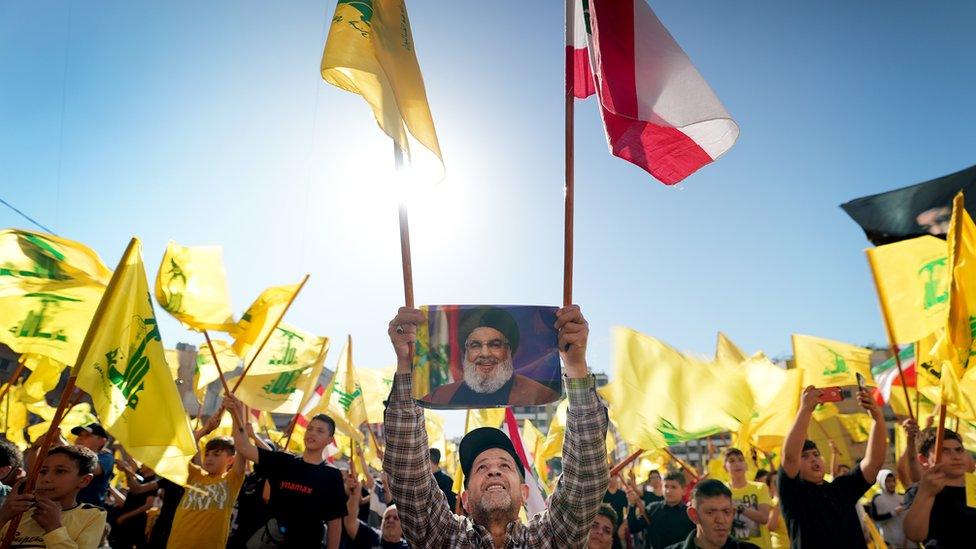
The Islamist movement Hezbollah is one of the most powerful forces in Lebanon
Nobody would consider complaining about the noise in this political stronghold. But amid the energy and jollity, there were firm instructions from the organisers not to ask questions of people in the crowd.
Sheikh Nasrallah's followers insist the party props up this ailing country. But the US, UK and others have designated the Iranian-backed group a foreign terrorist organisation. At home, its opponents say it's hollowing Lebanon out from the inside.
The main parties will always have their loyal voters. But this time around, there is a new generation of challengers. At grassroots hustings around the country, independent candidates fresh into politics believe that they can make a difference.
Verena El Amil is one of them. At a gathering in Broummana, just outside Beirut, she takes questions and tries to win loyalties. A former student activist, at 26 she's the youngest person standing for election.
"I'm seeing all my friends every day just packing and leaving," she says. "Personally, I prefer to say that I've tried and failed, rather than that I didn't try at all. I feel that there's maybe a bit to lose, but a lot to win.
"I think people realise that those who were the cause of the country's misery can't be the ones who will rebuild it. I think they all want change."
'Major change coming'
But what do the voters she's been speaking to think?
"We mustn't lose hope," one man tells me. "Maybe we will fail this time. But our children will win next time. That's life. You can't surrender."
A woman with flaming red hair is locked in an animated discussion next to him.
"I'm a swing voter, I'm undecided. I have sovereignty as a first priority and I think our sovereignty is hijacked. Also corruption. I think there's a major change coming to Lebanon, and not in the positive sense. It might disintegrate, as grim as that is."
It's after midnight and the debate goes on over whisky and slices of cake.
Out to sea, away from the twinkling village lights, the navy are still out on patrol. Capt Jreich is getting married this year and that's why he's staying in Lebanon.
Pulling bodies from the water shocks and saddens him. But he understands what drives these people to search beyond Lebanon for fresh hope.
The currency crash means his own wages are now worth the equivalent of just $80 (€77; £65) a month. He's one among millions here, struggling not just to survive Lebanon's financial crisis, but to build back a country worth staying in.

You may also be interested in:
One year on from the Beirut blast
Related topics
- Published10 September 2021
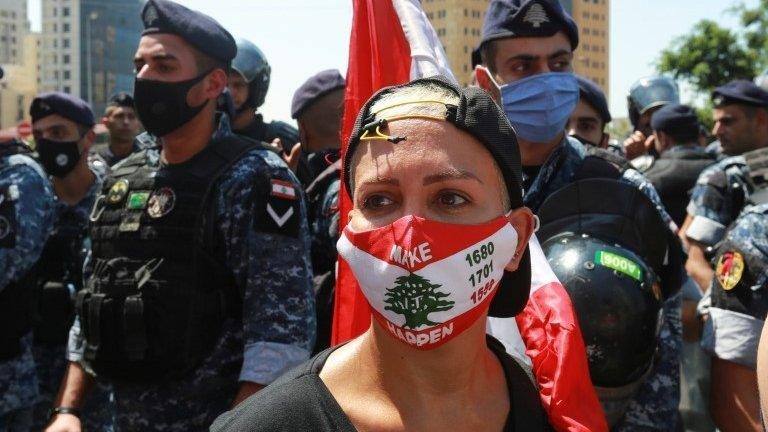
- Published4 August 2021
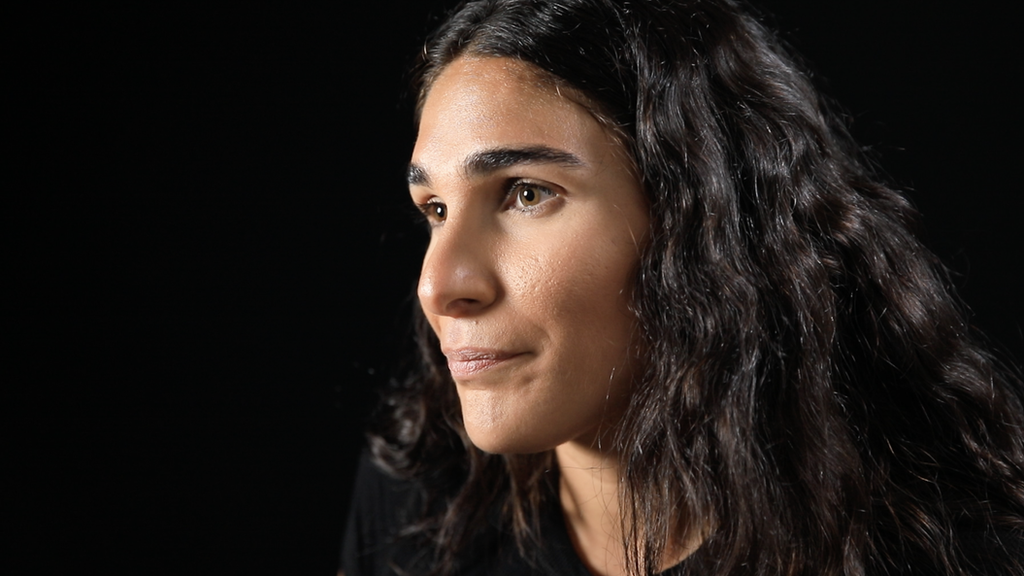
- Published6 August 2020
